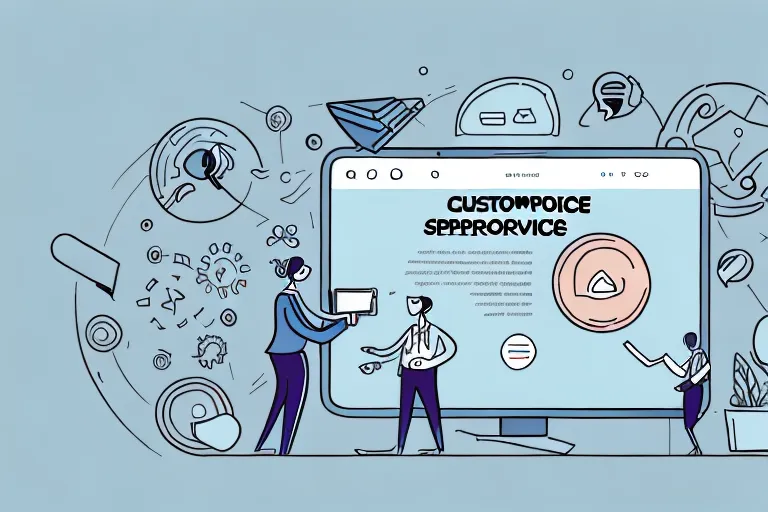In today's digital age, businesses are constantly seeking new ways to communicate with and satisfy their customers. RCS (Rich Communication Services) Business Messaging is a powerful tool that enables businesses to provide an enhanced messaging experience to their customers, by incorporating rich media, interactivity, and chatbot capabilities. In this article, we'll explore how businesses can effectively implement RCS Business Messaging for improved customer satisfaction.
Understanding RCS Business Messaging
What is RCS Business Messaging?
RCS Business Messaging is a next-generation messaging service that allows businesses to send interactive and engaging messages to their customers via their mobile phones, in a way that is similar to popular messaging apps like WhatsApp and Messenger, but with enhanced capabilities such as suggested replies, rich media content, and chatbots.With RCS Business Messaging, businesses can now send messages that are more than just plain text. They can include images, videos, and even interactive buttons that allow customers to take specific actions, such as making a purchase or booking an appointment. This level of interactivity helps to make the messaging experience more engaging and personalized, which in turn can lead to higher customer satisfaction.
Benefits of RCS Business Messaging for Customer Satisfaction
The benefits of RCS Business Messaging for customer satisfaction are numerous. RCS Business Messaging enables businesses to provide their customers with personalized and engaging messaging experiences, which can help to build customer loyalty and increase customer satisfaction. Additionally, RCS Business Messaging allows for real-time communication with customers, which can help to improve customer support and lead to faster issue resolution.Another benefit of RCS Business Messaging is the ability to provide customers with suggested replies. These are pre-populated responses that customers can choose from, which can save them time and effort when responding to a message. This feature can be especially useful for businesses that receive a high volume of messages, as it can help to streamline the communication process and improve response times.RCS Business Messaging also allows businesses to use chatbots to automate certain aspects of customer support. Chatbots are computer programs that can simulate human conversation, and they can be used to answer frequently asked questions, provide product recommendations, and even process orders. By using chatbots, businesses can provide faster and more efficient customer support, which can lead to higher customer satisfaction.In conclusion, RCS Business Messaging is a powerful tool that businesses can use to improve customer satisfaction and build stronger relationships with their customers. By providing personalized and engaging messaging experiences, businesses can create a competitive advantage and differentiate themselves from their competitors. With the ability to send rich media content, suggested replies, and chatbots, RCS Business Messaging is the future of business-to-customer communication.
Setting Up RCS Business Messaging Infrastructure
Setting up RCS Business Messaging can be a complex process, but it's a crucial step in improving your business's customer engagement and communication strategy. RCS, or Rich Communication Services, is an advanced messaging protocol that enables businesses to communicate with customers in a more interactive and engaging way.
Choosing the Right RCS Platform
When it comes to choosing the right RCS platform, there are several factors to consider. Firstly, it's important to assess the size of your business and the level of customizability you require. Some RCS platforms are designed for small businesses, while others are better suited to larger enterprises with more complex needs.Another important consideration is your budget. RCS platforms can vary significantly in price, so it's important to choose a platform that fits within your budget constraints. However, it's important not to sacrifice functionality for cost, as choosing an inferior platform can lead to poor customer engagement and ultimately harm your business's reputation.
Integrating RCS with Your Existing Systems
Integrating RCS with your existing systems is a crucial step in the implementation process. This involves ensuring that RCS is fully compatible with your existing CRM, customer support, and marketing systems. Integration can be a complex process, so it's important to work with an experienced provider who can guide you through the process.When integrating RCS with your existing systems, it's important to ensure that your customer data is fully protected. This can involve implementing strict security protocols to prevent data breaches and unauthorized access to sensitive information.
Ensuring Security and Compliance
Ensuring the security and compliance of your RCS Business Messaging system is critical to ensuring customer satisfaction. This involves implementing strict security protocols to protect customer data, as well as adhering to relevant compliance regulations such as GDPR and CCPA.Your chosen RCS platform provider should have robust security and compliance protocols in place to ensure the protection of sensitive customer data. This can include measures such as encryption, multi-factor authentication, and regular security audits to identify and address potential vulnerabilities.By taking these steps to ensure the security and compliance of your RCS Business Messaging system, you can build trust with your customers and improve the overall customer experience.
Designing Effective RCS Business Messages
In today's fast-paced digital world, businesses need to find new and innovative ways to connect with their customers. One such way is through the use of Rich Communication Services (RCS) Business Messaging. RCS Business Messaging allows businesses to send interactive and engaging messages to their customers, providing a more personalized and interactive messaging experience.
Crafting Engaging and Personalized Messages
When designing RCS Business Messages, it is important to keep in mind that your customers are looking for personalized and engaging experiences. To achieve this, businesses need to understand their customers' preferences and interests. This can be achieved through the use of customer data, such as their location, past purchases, and browsing history.By using this data, businesses can tailor their messages to each individual customer, providing them with relevant and personalized content. This not only helps to increase engagement but also helps to build stronger relationships with customers.
Utilizing Rich Media and Interactive Elements
One of the key benefits of RCS Business Messaging is its ability to incorporate rich media and interactive elements into messages. This allows businesses to create visually appealing and engaging messaging experiences for their customers.Rich media elements such as images, videos, and buttons can be used to capture customers' attention and provide them with more information about products and services. Interactive elements such as suggested replies, quick replies, and chatbot capabilities can be used to provide customers with a more interactive and personalized experience.For example, a retail business could use RCS Business Messaging to send a message to a customer with a personalized offer based on their past purchases. The message could include an image of the product, a button to purchase the product, and suggested replies such as "Yes, I want to buy it" or "No, I'm not interested."
Implementing AI and Chatbots for Enhanced Communication
Artificial Intelligence (AI) and chatbots can be powerful tools for enhancing customer communication in RCS Business Messaging. Chatbots can be used to provide customers with rapid responses to common questions and issues, freeing up customer service representatives to focus on more complex issues.AI can be used to provide personalized recommendations and insights based on customer data. For example, a travel business could use AI to recommend personalized travel itineraries based on a customer's past travel history and preferences.When implemented effectively, these tools can greatly improve the customer experience and lead to increased levels of satisfaction. Customers will appreciate the personalized and efficient service, and businesses will benefit from increased customer loyalty and sales.
Measuring the Impact of RCS Business Messaging on Customer Satisfaction
Rich Communication Services (RCS) Business Messaging is a powerful tool that businesses can use to engage with customers in a more interactive and personalized way. With RCS, businesses can send messages that include rich media, such as images, videos, and interactive buttons, which can help to increase engagement and drive conversions. However, it's important for businesses to measure the impact of their RCS messaging strategy on customer satisfaction to ensure that they are delivering a positive experience.
Key Performance Indicators (KPIs) to Track
When measuring the impact of RCS Business Messaging on customer satisfaction, there are several key performance indicators (KPIs) that businesses should monitor. These can include response times, engagement rates, and conversion rates. Response times refer to the amount of time it takes for a business to reply to a customer's message. By monitoring response times, businesses can ensure that they are providing timely and efficient customer service. Engagement rates refer to the percentage of customers who interact with a business's RCS message by clicking on a link or button, for example. By monitoring engagement rates, businesses can identify which types of messages are most effective at driving customer engagement. Conversion rates refer to the percentage of customers who take a desired action, such as making a purchase or filling out a form, after receiving an RCS message. By monitoring conversion rates, businesses can measure the effectiveness of their messaging strategy at driving conversions.
Analyzing Customer Feedback and Sentiment
Customer feedback and sentiment analysis can provide valuable insights into the effectiveness of your RCS Business Messaging strategy. By collecting feedback from customers, businesses can gain a better understanding of their needs and preferences. This feedback can then be used to make data-driven decisions to optimize messaging content, design, and targeting. Sentiment analysis involves using natural language processing (NLP) technology to analyze the tone and emotion of customer messages. By analyzing customer sentiment, businesses can identify potential issues and take proactive steps to address them before they escalate.
Adjusting Your RCS Strategy for Continuous Improvement
Finally, it's important to recognize that RCS Business Messaging is a dynamic and constantly evolving technology. To ensure ongoing success and customer satisfaction, businesses must be willing to adjust their RCS strategy based on analysis of KPIs and customer feedback. This may involve making changes to messaging content or design, or exploring new features and capabilities offered by the RCS platform provider. By continuously optimizing their RCS messaging strategy, businesses can ensure that they are delivering a positive and engaging customer experience.
Conclusion
Implementing RCS Business Messaging can be a highly effective way for businesses to enhance customer satisfaction and build customer loyalty. By understanding the key steps involved in implementing RCS, designing effective messaging content, and monitoring and analyzing KPIs and customer feedback, businesses can optimize their RCS strategy for continuous improvement. With the right approach, RCS Business Messaging can help to transform the way businesses communicate with their customers, leading to increased engagement, higher satisfaction, and ultimately, improved business performance.

